Human activities are accelerating global warming at record levels, leading to a rise of 1.19 degrees Celsius between 2014 and 2023, according to new research on Wednesday by over 50 leading international scientists.
This is an increase from the 1.14 degrees C seen between 2013-2022, revealed the second annual Indicators of Global Climate Change report, led by the University of Leeds, UK.
It showed that global warming caused by humans is advancing at 0.26 degrees C per decade -- the highest rate since records began.
“Our analysis shows that the level of global warming caused by human action has continued to increase over the past year, even though climate action has slowed the rise in greenhouse gas emissions,” said Professor Piers Forster, Director of the Priestley Centre for Climate Futures at the University of Leeds.
“Global temperatures are still heading in the wrong direction and faster than ever before,” Forster added.
Published in the journal Earth System Science Data, the report attributed the increased rate of warming to a combination of greenhouse gas emissions being consistently high, equivalent to 53 billion tonnes of carbon dioxide (CO2) per year.
The high greenhouse gas emission levels are also affecting the Earth's energy balance: ocean buoys and satellites are tracking unprecedented flows of heat -- 50 per cent higher than its long-term average -- into the Earth’s oceans, ice caps, soils and atmosphere, said the report.
“Fossil fuel emissions are around 70 per cent of all GHG emissions and clearly the main driver of climate change, but other sources of pollution from cement production, farming and deforestation and cuts to the level of sulphur emissions are also contributing to warming,” Forster said.
The report noted that while 2023 turned out to be the hottest year, the record high temperature was the result of natural climate variability, in particular El Nino.
Further, the researchers said that around 200 gigatonnes (billion tonnes) or about five years' worth of current emissions are left to be emitted before reaching the threshold of 1.5 degrees C, above the pre-industrial average.

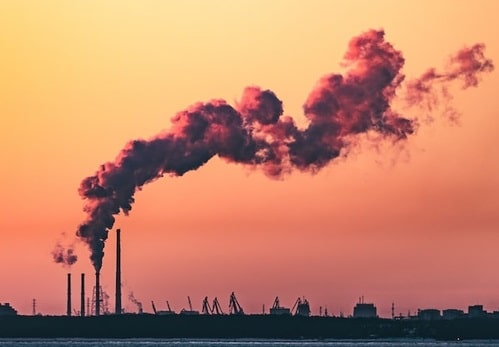
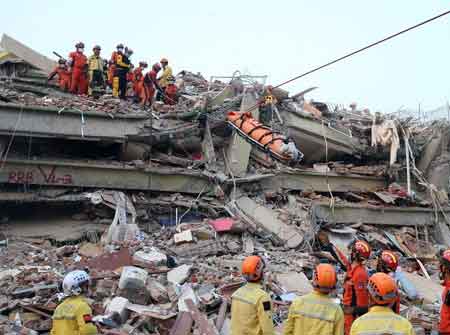
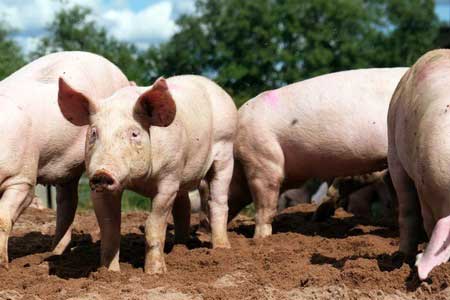
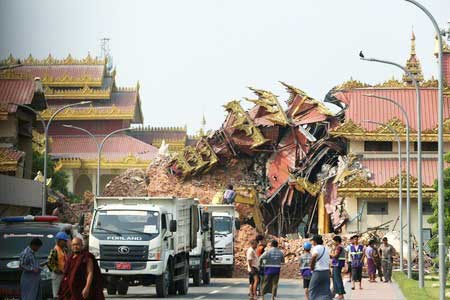
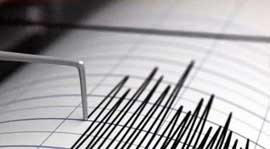
Myanmar's earthquake death toll rises to 3,770
The death toll from a 7.7-magnitude earthquake in Myanmar has risen to 3,770 as of April 28, the state-owned daily The Mirror reported on Tuesday.
ASF kills over 1,050 pigs in 3 districts of Mizoram
An official from Mizoram's Animal Husbandry and Veterinary Department (AHVD) said on Friday that the department so far declared 34 localities in three districts as ASF-infected zones -- Lawngtlai, Mamit and Siaha.
Death toll rises to 1,644 following powerful earthquake in Myanmar
A total of 1,644 people died and 3,408 were injured, and 139 remained missing due to the powerful earthquake in Myanmar, said the Information Team of the State Administration Council on Saturday.
3.8-magnitude earthquake shakes Manipur, no casualties reported
A mild quake, measuring 3.8 on the Richter scale, shook Manipur’s Noney district and adjoining areas on Saturday, officials said.
Over 510 pigs killed due to African Swine Fever in Mizoram
An official from Mizoram's Animal Husbandry and Veterinary Department (AHVD) said that over 510 pigs died due to the ASF during the past two weeks in 13 villages and localities in two Mizoram districts -- Lawngtlai and Mamit.
India's per capita CO2 emissions among lowest in world as green energy capacity surges
India, which has emerged as the world’s 5th largest economy, also stands out as a country with one of the lowest per capita carbon dioxide (CO2) emissions globally as it balances growth with sustainability and switches to renewables at a rapid pace.
Amazing news, says PM Modi as MP earns another stripe for tiger conservation
Overwhelmed by another stripe which Madhya Pradesh earned the other day for its Madhav National Park, Prime Minister Narendra Modi posted on social media about the new recognition of the park as the state's ninth tiger reserve - a true sanctuary for these majestic creatures for many years.
Chamoli avalanche: Death toll climbs to 7; rescue ops for one remaining worker underway
The death toll in the Chamoli avalanche in Uttarakhand's Mana region has reached seven, with the rescue officials pulling out three more bodies on Sunday. Meanwhile, the search operation for one missing worker is still ongoing.